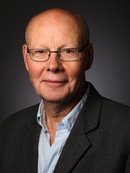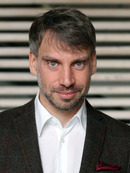REASON Spring School 2018 Keynotes
 |
Rainer Bromme (University of Münster) |
Keynote Abstract
Psychological research about reasoning as well as research about the acquisition of a deep understanding of science often has a strong emphasis on the failures and limitations of students as well as of adults. Reasoning seems to be hampered by biases and personal motivations, science understanding seems to be limited by students' difficulties to overcome pre-conceptions and intuitive theories. The evidence about the shortcoming of human reasoning is mostly based on experimental research, just as the evidence on the weaknesses of science understanding which is also corroborated by large scale studies using standardized assessment tools.
With regard to such findings it could be asked what should be achieved in science education at all? Or, in other words, what could be achieved as Scientific Literacy for all students? It is obvious that participating in a modern and democratic societies requires basic capacities for coping with science based knowledge claims. There are many so called socio-scientific issues which matter for all citizens in their private, public and professional life, for example in the domains of health, nutrition, environment, education. Which capabilities are necessary for selecting and judging information as well as beliefs and opinions which might matter for such issues (for example for a personal health related decision) and which are easily available in the Internet? Modern accounts of Scientific Literacy are based on the assumption that all citizens should acquire such capabilities, for example the concepts of 'functional scientific literacy' (I. Tabak) or the idea of 'competent outsiders' instead of 'incompetent insiders' (N. Feinstein).
My presentation will not primarily be about the challenges and conditions of Science Education in today's schools. Instead I will use the question of what makes up a modern concept of Scientific Literacy as testbed for discussing psychological ideas about the relationship between reasoning (making inferences), understanding (processing conceptual knowledge) and communicating (being engaged simultaneously in different discourses).
Short Bio: Rainer Bromme has been Professor (Educational Psychology) from 1995 to 2016 at the Institute of Psychology, University of Münster, Germany. He was teaching in Bachelor- and Master-programs in Psychology. Now he is appointed as 'Senior Professor' at Münster University, with a focus on research on science communication and he is still involved in PhD programs. His present research addresses learning in formal and informal learning contexts, especially communication among experts and laypersons, internet use and the Public Understanding of Science. From 2009 to 2015 he coordinated a German Science Foundation (DFG) funded research program on Science and the Public: The public understanding of conflicting scientific evidence. At present, he is one of the PI’s within the DFG funded Research Training Group Trust and Communication in a Digitized World at the University of Münster.
 |
Michelene (Micki) T.H. Chi (Arizona State University) |
Keynote Abstract
Scholars studying causal explanations typically consider processes with temporal contiguity. That is, the events composing a process occurs temporally as a sequence of events, such as explaining what is the causal relationship between a “broken window” and the sequence of prior events consisting of “the boy kicked a ball” and “the ball hit the glass window.” However, there is another kind of processes that needs explanation. These are processes that exhibit a recognizable pattern, such as a V-formation, a straight path towards a goal, an increase/decrease in numerosity, size, volume, color intensity, and so forth. However, there are two kinds of underlying causal mechanisms for explaining such common everyday recognizable patterns. We propose that students are predisposed to infer only one kind of causality to explain such patterns, the cumulative kind, thus often erring in their causal explanations, resulting in robust misconceptions, especially for explaining science processes. We attempt to teach students the other collective kind of causality, in order to foster more accurate explanations of many science processes.
Short Bio: Michelene Chi is the Dorothy Bray Endowed Professor in the Mary Lou Fulton Teachers College at Arizona State University (ASU). Her research focuses on learning, especially for STEM domains. She currently has three strands of work applicable to both pre-college and college-level instruction in STEM. The first strand is a theory of active learning or cognitive engagement called ICAP. The second strand is a theory about emergence causality that explains the robustness of many science misconceptions across domains. The third strand is her exploration of a new paradigm for improving learning from online videos. Dr. Chi’s interdisciplinary work is widely cited and she has received many awards from both education and psychology, including the Sylvia Scribner Award in 2013 and the Distinguished Contributions to Research in Education Award in 2016, both from AERA, and the Thorndike Award from the American Psychological Association in 2015. Dr. Chi was elected to the National Academy of Education in 2010, and also to the oldest and most prestigious honorary societies in 2016 –The American Academy of Arts and Sciences.
 |
Wolfgang Gaissmaier (University of Konstanz) |
Keynote Abstract
The public reception of scientific evidence is often polarized, difficult to anticipate, and at odds with expert opinion. The risks associated with genetically modified food, certain chemicals, and new technologies, for instance, continue to elicit strong public reaction in contrast to the assessments of many experts, whereas the public is much less worried about the risks associated with poor nutrition, a sedentary lifestyle, and extensive exposure to the sun. At the same time, many people overestimate the impact of medical treatments, including but not limited to the benefits of cancer screening, of modern drugs (e.g., in neurology), and of alternative medicines. The first problem in this regard is that many people fail to understand the relevant statistical evidence. Both experts and laypeople can be heavily manipulated by how the statistical information is framed. But the problem runs deeper than that. Even if the evidence is understood and clear, we observe a shortage of evidence culture in our society, including among the highly educated. People dismiss scientific evidence because it does not fit to their beliefs, be they based on political ideologies, conspiracy theories, or religion. Fundamental misperceptions of randomness and causality fuel many of the (medical and other) superstitions that people harbor instead. Finally, the interpretation of scientific evidence is also shaped by social processes, which can amplify those misperceptions and lead to polarized beliefs. What can be done? Some of these obstacles can be overcome by teaching statistical thinking and by using transparent representations of statistical evidence. But this is not enough. We ultimately need a societal consensus regarding the meaning and interpretation of science, and the courage to base decisions on evidence rather than eminence or superstition.
Short Bio: Wolfgang Gaissmaier (*1977), PhD, is a Full Professor of Social Psychology and Decision Sciences at the University of Konstanz, Germany (since 2014). His research investigates how people make decisions under uncertainty and how risks can be communicated more successfully. Previously, he was Chief Research Scientist at the Harding Center for Risk Literacy at the Max Planck Institute for Human Development, Berlin. Wolfgang Gaissmaier’s work has been published in leading psychological and medical journals, including Annals of Internal Medicine, Annual Review of Psychology, Cognition, Health Psychology, JAMA, PNAS, and Psychological Science. His awards include the Otto Hahn Medal for outstanding scientific achievements by the Max Planck Society.
All keynotes are accompanied by a workshop. Please visit the workshops section of the webpage.

